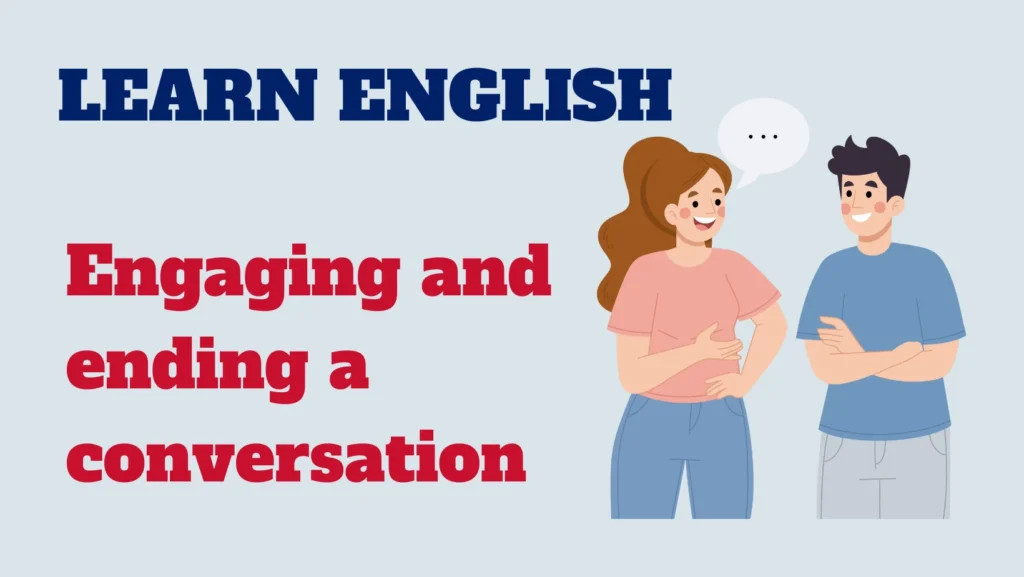Acquiring the skills to initiate, sustain, and conclude a conversation in English is crucial for effective communication with native speakers. In this lesson, we will introduce you to some useful expressions to assist you in navigating the various phases of a conversation in English.

Whether you are a beginner in English or seeking to enhance your language proficiency, these expressions will prove invaluable for successfully interacting with native speakers.
Starting a conversation:
When initiating a conversation, use these common expressions to begin the dialogue:
“Hello, how are you?”
This phrase is a common courtesy to greet someone and ask how they are.
“Excuse me, may I ask you a question?”
Use this expression when you want to get information or ask something.
“I’m [your name], and you?”
This is a common way to introduce yourself and invite the other person to do the same.
“Can I talk to you?” – This is a question to ask for permission to speak to someone.
Changing the subject:
Sometimes, it’s necessary to change the subject during a conversation. Use these expressions to do so:
“By the way, speaking of [subject], what do you think?“
Use this phrase to introduce a new topic related to what has just been mentioned.
“So, have you heard about [subject]?”
This expression allows you to change the subject by asking a question about another topic.
“Let’s move on. Let’s talk about [subject].”
Use this expression when you want to steer the conversation towards a different topic.
Speaking up:
When you want to contribute to a conversation, use these expressions to express yourself:
“I would like to add something about [subject].”
This phrase indicates your desire to contribute to the discussion by providing additional information on a given topic.
“Allow me to give my opinion on [subject].”
Use this expression when you want to express your opinion on a specific subject.
“If I may interject, I think [your opinion].”
This expression is useful to signal that you have a different opinion or want to share an alternative point of view.
Maintaining the conversation:
Once you’ve spoken, it’s important to keep the interaction going. Use these expressions:
“Furthermore, it’s important to mention that…”
Use this expression to add additional information to your argument or to elaborate on your viewpoint.
“On the other hand, I think that…”
This phrase allows you to present another aspect of the discussion or offer an alternative perspective.
“Moreover, it’s worth noting that…”
Use this expression to emphasize important information or to add facts to the conversation.
Ending a conversation:
When you want to politely end a conversation, use these expressions:
“It’s been nice talking to you, but I have to go now.”
This phrase indicates that you enjoyed the conversation but need to leave.
“I have to leave, but it was very interesting talking with you.”
Use this expression when you want to end the conversation cordially.
“We could continue this conversation another time. See you soon!“
This phrase suggests continuing the conversation later, showing your interest in future interaction.
By using these expressions to engage, continue, and end a conversation in English, you’ll be able to communicate effectively with English speakers. Practice them regularly to improve your language skills and feel more comfortable during verbal interactions in English. Remember to observe real conversations and adapt these expressions based on the context and your interlocutor. Happy conversing!



